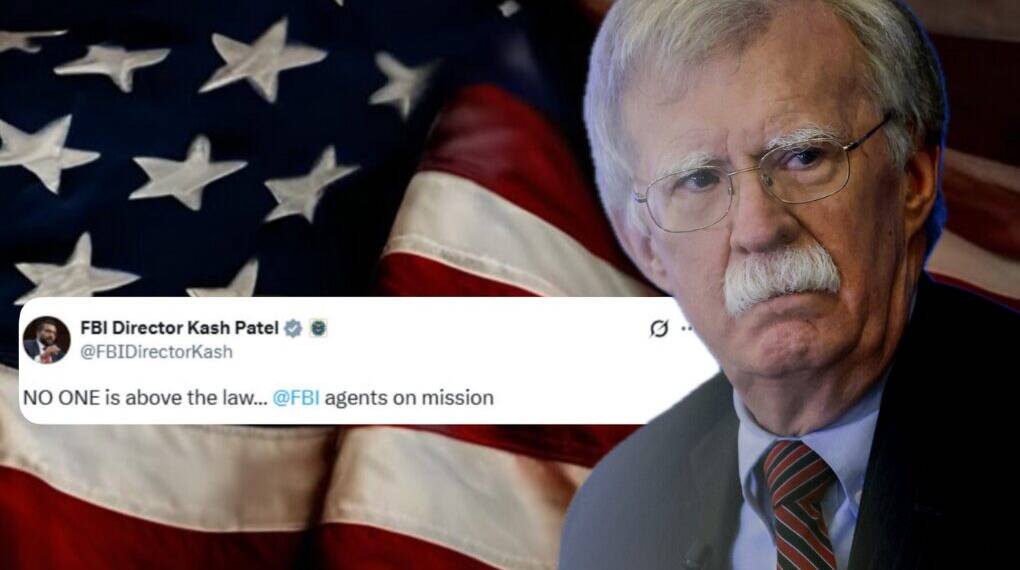In an unexpected twist to Washington’s already fraught debate over handling of classified information, the FBI reportedly raided the Maryland residence of former National Security Adviser John Bolton. According to an exclusive report from the New York Post, the raid was conducted as part of a high-profile national security investigation involving alleged mishandling of classified documents.
A Dramatic Moment
The timing of the raid has raised eyebrows. Just hours earlier, Kash Patel posted a cryptic message online—“No one above the law.” While the post did not directly name Bolton, its proximity to the FBI operation sparked speculation about underlying political undertones and whether Patel had foreknowledge of the unfolding investigation.
Bolton, who served as National Security Advisor under President Donald Trump before becoming one of his most outspoken critics, has written extensively on foreign policy and sensitive national security matters. His tenure in government, particularly during the Bush and Trump administrations, placed him in direct contact with the highest levels of intelligence. That makes him a figure of unusual interest in any probe tied to retained classified files.
Legal and Political Dimensions
The FBI raid underscores how issues surrounding classified documents have become a recurring political fault line in Washington. From Hillary Clinton’s email controversy to investigations into both President Biden and President Trump, disputes over state secrets are increasingly central to public debates about accountability and credibility.
Targeting a figure like Bolton adds yet another layer of complexity. He is neither a political outsider nor a partisan loyalist—his career has spanned Republican administrations, but he has often clashed with both parties. Bolton’s very public break with Trump will likely fuel speculation about whether legal scrutiny is impartial or politically tinged, a dilemma that has dogged nearly every classified documents case to date.
Implications for National Security
Classified information investigations are not just about politics—they strike at the heart of U.S. intelligence management. If the FBI believes sensitive documents were at risk of compromise, it signals serious concern. Bolton’s extensive experience in the highest levels of government means that any material found in his possession could involve foreign policy decisions, intelligence operations, or military planning during volatile global episodes, such as the post-9/11 wars or Iran policy debates.
A Warning and a Precedent
Patel’s pointed remark that “no one is above the law” captures a shifting narrative in Washington—that elite figures, whether presidents, Cabinet officials, or intelligence chiefs, cannot assume immunity when it comes to safeguarding classified information. By moving against someone of Bolton’s stature, investigators may be signaling that the rules apply as stringently to seasoned veterans as to political newcomers.
What Comes Next?
For now, neither Bolton nor his representatives have issued detailed statements. The Justice Department has also maintained silence. What is clear, however, is that the case will fuel debates about consistency in law enforcement, selective scrutiny, and whether Washington’s elite are finally being held accountable under the same standards as ordinary officials. Congressional oversight committees are already signaling interest in reviewing the circumstances of the raid, suggesting this investigation could quickly expand beyond the legal arena into one of Washington’s most heated political battles.
The FBI’s raid on John Bolton’s home is more than a procedural step in a security probe—it is a reflection of the growing tension between political power, public trust, and the legal boundaries of handling state secrets. Whether this case ultimately leads to charges or fizzles under the weight of politics, it deepens the narrative that America’s battles over classified documents are far from over. And with each new investigation, Washington finds itself confronting a deeper question: are legal standards finally being applied evenly, or will the public continue to suspect that politics shapes who gets targeted and who does not?








